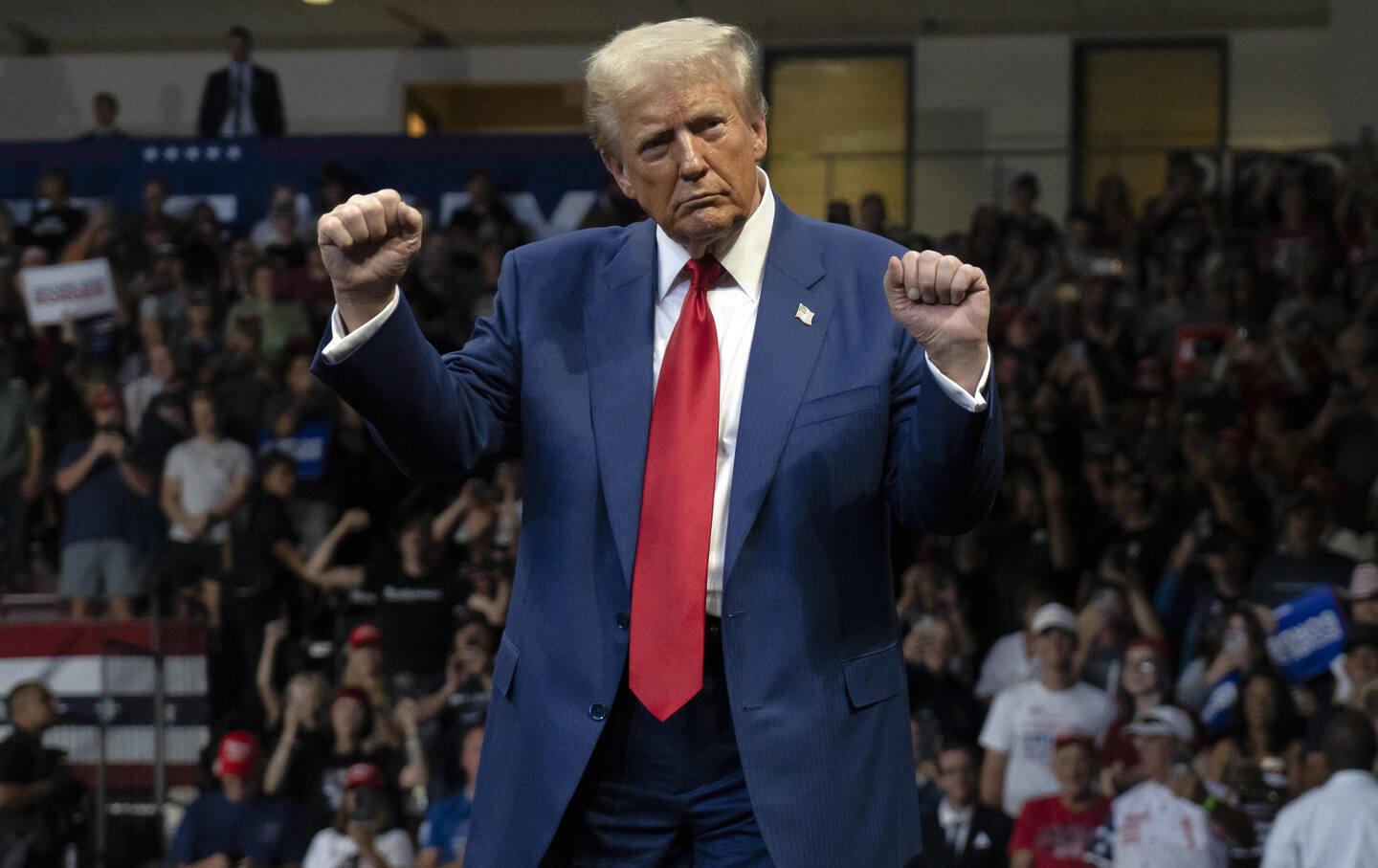
The Return Of Trump
One who recalls Donald Trump's dramatic defeat in the 2020 election against Democrat Joe Biden could hardly have imagined that this individual would return four years later to achieve such a victory, despite numerous accusations, legal cases, sexual scandals, and financial corruption. He has overcome legal obstacles that seem nearly insurmountable under American law. Nevertheless, he has returned to wield his influence against all those who belittled him or underestimated his political capabilities, believing that his expertise was limited solely to finance business and real estate.

Hatem Sade
Internally, it is anticipated that Trump, alongside his associate Elon Musk, will implement ambitious plans to reduce government expenditures at all levels and further expand presidential powers beyond what was experienced during his first term. In addition, there exists a lengthy list of individuals from whom Trump intends to seek retribution, including prominent political figures in America such as Biden, Harris, Barack Obama, Hillary Clinton, Nancy Pelosi, and Facebook founder Mark Zuckerberg, in addition to another list comprising lawyers and attorneys general.
On Wednesday, allies and adversaries of the United States around the globe awoke to the news of Trump's assumption of a second presidential term. Many of America's Western allies expressed concern regarding the return of a Trump administration, which adheres to the“America First” doctrine that could significantly alter U.S. foreign policy and its engagement with what is referred to as the“free world.” Even before announcing his candidacy, Trump asserted his capability to achieve peace in Ukraine, resolve the conflict in Gaza, impose restrictions on Chinese trade practices, and compel allies to contribute their“fair share” to NATO. Trump's relationships with several European leaders were contentious, and he demonstrated a disregard for institutions such as the European Union, the United Nations, and NATO. Concurrently, he sought to cultivate positive relations with leaders of U.S. adversaries, including Russian President Vladimir Putin, Chinese President Xi Jinping, and North Korean leader Kim Jong-un. Upon assuming office, President Biden immediately distanced himself from the previous administration's policies and revitalized relationships with traditional American allies, such as the European Union. One day before the U.S. presidential elections, a European non-governmental organization released a report indicating that public opinion in most European countries strongly favors Kamala Harris's potential ascension to the White House. This preference stems from concerns regarding the possible return of Trump and his approach, which tends to prioritize business-like dealings with the EU, often framed as“pay for protection.”
It is widely recognized that the Russians and their allies in Eastern Europe have a preference for the return of Donald Trump. Notably, Hungarian Prime Minister Viktor Orbán, a key ally of Trump, was among the first to congratulate him on his victory. Following him, Israeli Prime Minister Benjamin Netanyahu, who had been largely reluctant to engage with Kamala Harris, also expressed his support. Recent opinion polls indicate that a significant majority of Israelis favored Trump over Harris.
In the Arab world, many Gulf leaders, who maintained a close relationship with Trump during his first term, also expressed hopes for his return. Conversely, Iranian leaders do not share this sentiment. According to U.S. intelligence, there have been allegations that the Iranians conspired to assassinate Trump.
A substantial array of complex files will be presented to Trump. Despite their multitude and sensitivity, he will face another challenge: how to address the“axis of adversaries.” This term refers to the“flourishing cooperation among China, Iran, North Korea, and Russia,” which has emerged as a consequence of the imprudent policies implemented by the Democrats under Joe Biden's leadership during the past four years. This poses a significant threat that could potentially plunge the world into a third world war or, at the very least, lead to the proliferation of numerous isolated conflict zones across the globe.
China is regarded as the primary long-term concern for Washington among these four actors, and simultaneously, it is the only one among them that is deeply integrated into the global economy.
Trump will likely adopt a policy similar to that of former U.S. Secretary of State Condoleezza Rice, who recently suggested in an interview at the Atlantic Council's Global Future Forum that policymakers should employ a strategy of separating China from the rest of the group through a combination of incentives and penalties, as well as fostering divisions among them, given that the four nations share few common interests. This approach entails effectively countering Iran, North Korea, and Russia in their respective regions, thereby demonstrating to China that aligning itself with a group of perceived losers is not a viable path to global influence.
Concerning Russia, this would imply preventing President Vladimir Putin from achieving victory in Ukraine, which necessitates ongoing diplomatic, economic, and military support from the West. The objective would be to integrate Ukraine into institutions such as the European Union and NATO, establishing it as a democratic, secure, prosperous, and sovereign state. However, this approach contrasts sharply with the stance taken by Trump during his electoral campaign, where he asserted that he would swiftly resolve this conflict.
For Iran, this would signify a suppression of Tehran's dominant ambitions in the Middle East, representing a shift from the current stance of the United States and its allies, who are presently seeking to curb Tehran's influence without engaging in direct conflict. This will necessitate support for Israel as it gains momentum in launching strikes against Iran and its proxies.
At the same time, achieving greater regional stability will necessitate ongoing reconciliation between Israel and Arab nations, as well as revitalizing the Abraham Accords initiated before the conclusion of the previous administration. This approach aims to provide a more acceptable future for the Palestinians and a renewed opportunity for Lebanon to liberate itself from Hezbollah's dominance.
Regarding North Korea, this will require deterring Pyongyang by enhancing the diplomatic, economic, and military capabilities of the United States' regional allies-Australia, Japan, and South Korea-all to advance toward a free, open, and stable Indo-Pacific region.
We are thus facing a critical period in every sense of the word, both domestically within the United States, where a potentially prolonged phase of settling scores with former adversaries awaits, and externally, where we are likely to witness a dramatic upheaval in most of the conflicts that have erupted and persisted over the past four years. We pray for safety.
Hatem Sadek – Professor at Helwan University

Legal Disclaimer:
MENAFN provides the
information “as is” without warranty of any kind. We do not accept
any responsibility or liability for the accuracy, content, images,
videos, licenses, completeness, legality, or reliability of the information
contained in this article. If you have any complaints or copyright
issues related to this article, kindly contact the provider above.
















Comments
No comment